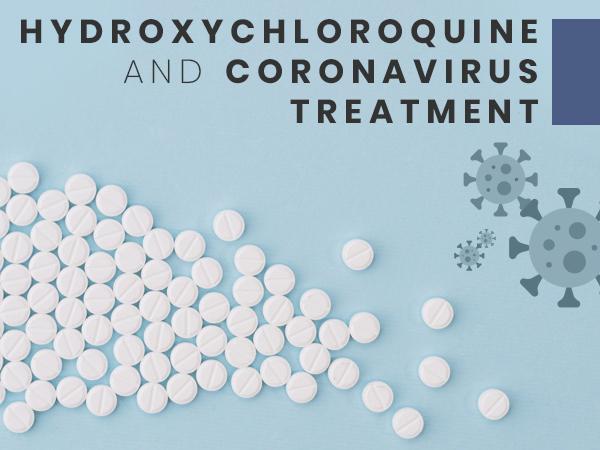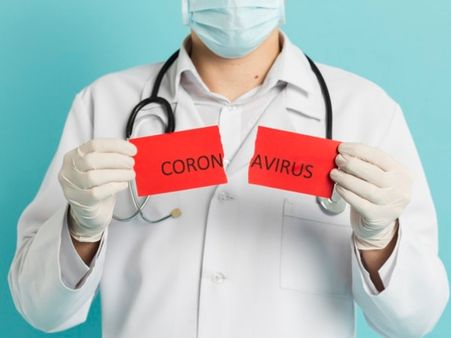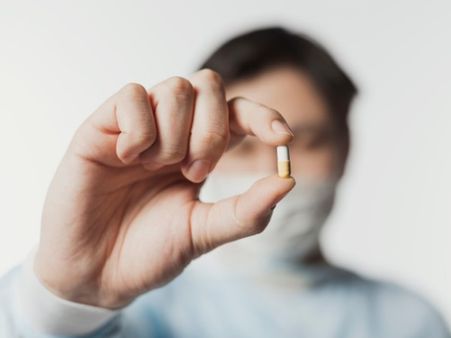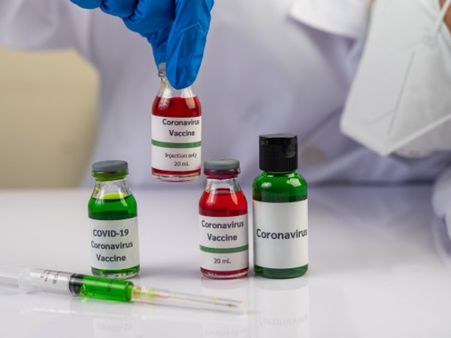Just In
- 1 hr ago

- 8 hrs ago

- 9 hrs ago

- 13 hrs ago

Don't Miss
- Sports
 Pakistan vs New Zealand 2nd T20I Match Preview, Key Players, Injury Update, Squad, Other Details
Pakistan vs New Zealand 2nd T20I Match Preview, Key Players, Injury Update, Squad, Other Details - News
 Andhra Pradesh CM Jagan Mohan Reddy Says Pawan Kalyan Dances To Chandrababu Naidu's Tunes
Andhra Pradesh CM Jagan Mohan Reddy Says Pawan Kalyan Dances To Chandrababu Naidu's Tunes - Movies
 When Karan Johar Revealed Sara Ali Khan And Janhvi Kapoor Once Dated Siblings On KWK 7, Guess Who?
When Karan Johar Revealed Sara Ali Khan And Janhvi Kapoor Once Dated Siblings On KWK 7, Guess Who? - Finance
 Reliance, ONGC, Tata, Adanis: Energy Stocks Didn't Get The Memo Of Bears, Up 12% In 30-Days; 10 Stocks To BUY
Reliance, ONGC, Tata, Adanis: Energy Stocks Didn't Get The Memo Of Bears, Up 12% In 30-Days; 10 Stocks To BUY - Automobiles
 Suzuki Swift Hatchback Scores 4 Star Safety Rating At JNCAP – ADAS, New Engine & More
Suzuki Swift Hatchback Scores 4 Star Safety Rating At JNCAP – ADAS, New Engine & More - Education
 NLSIU Announces the Rajiv K. Luthra Foundation Grant
NLSIU Announces the Rajiv K. Luthra Foundation Grant - Technology
 Dell Introduces AI-Powered Laptops and Mobile Workstations for Enterprises in India
Dell Introduces AI-Powered Laptops and Mobile Workstations for Enterprises in India - Travel
 Journey From Delhi To Ooty: Top Transport Options And Attractions
Journey From Delhi To Ooty: Top Transport Options And Attractions
Hydroxychloroquine And Coronavirus: How Is It Linked?
Hydroxychloroquine is one of the most common terms discussed right now, amidst the COVID-19 pandemic. Hydroxychloroquine (HCQ) is making news, being linked to the prominent names of US President Donald Trump and Indian Prime Minister Narendra Modi, where the former promoted the use of this drug as a cure for the coronavirus.

On 26 March, hydroxychloroquine exports were banned in India allegedly leading the POTUS and Brazilian President Jair Bolsonaro, among other state leaders reached out to the Indian authorities in an attempt to have the ban lifted.
Under the threat of 'retaliation', the restrictions were lifted by the Indian government last week, allowing the large scale yet demand-oriented production of hydroxychloroquine (HCQ) as a treatment drug for Covid-19 [1].

Hydroxychloroquine and a related drug, chloroquine, are currently under study as possible treatments for COVID-19.

What Is Hydroxychloroquine?
Hydroxychloroquine is a prescription drug which comes in the form of oral tablets and can be used as part of combination therapy [2]. Commonly used in the prevention and treatment of malaria, the drug is also used to treat lupus erythematosus and rheumatoid arthritis [3].
Being an antimalarial drug, hydroxychloroquine treats malaria by killing the parasites that cause the disease [4]. It is believed that the drug affects the working of your immune system to prevent and treat the conditions [5].
Hydroxychloroquine comes as a tablet to take by mouth and is occasionally used in the treatment of porphyria cutanea tarda a type of porphyria or blood disorder that affects the skin [6].
Hydroxychloroquine tablet has certain side effects such as headache, dizziness, diarrhoea, stomach cramps and vomiting [7]. Mild side effects may go away within a few days or a couple of weeks. Serious side effects include blurred vision, heart failure, hearing loss, hives, mild or severe bronchospasm, sore throat, severe hypoglycaemia, unusual bleeding or bruising, muscle weakness, hair loss, mood changes and mental health effects, including suicidal thoughts [8].
In addition to that, hydroxychloroquine may interact with other medications or vitamins and can become harmful or prevent the drug from working well.

What Is Chloroquine?
Chloroquine phosphate is an antimalarial and amebicide drug that is used in the treatment and prevention of malaria and amebiasis, an infection of the intestines with a parasite called Entamoeba histolytica (E. histolytica) [9].
Chloroquine phosphate is used occasionally to decrease the symptoms of rheumatoid arthritis, like hydroxychloroquine [10]. In addition to that, this drug is also used in the treatment of scleroderma, pemphigus, lichen planus and polymyositis [11].
The
side
effects
of
chloroquine
include
headache,
loss
of
appetite,
diarrhoea,
upset
stomach,
skin
rash
or
itching,
hair
loss
and
mood
changes
[12].
Severe
symptoms
of
the
drug
include
drowsiness,
vomiting,
irregular
heartbeats,
convulsions,
difficulty
breathing,
blurred
vision,
ringing
in
the
ears
and
muscle
weakness
[13].

Hydroxychloroquine And Chloroquine: Can It Cure Covid-19?
According to some reports, it is believed that hydroxychloroquine tablets can work as a prophylactic (medicine used to prevent disease) for the health workers working on the frontlines and first responders of the Covid-19 infection [14].
However, if these can be the cure to the coronavirus disease is still unclear as there is no scientific proof or medical evidence which shows that hydroxychloroquine can cure Coronavirus [15].
"In terms of science, I don't think we can definitively say it works. The data are really just at best suggestive. There have been cases that show there may be an effect and there are others to show there's no effect," said Dr Anthony Fauci, The White House top Coronavirus advisor [16].
"The coronavirus disease 2019 (COVID-19) virus is spreading rapidly, and scientists are endeavouring to discover drugs for its efficacious treatment in China. Chloroquine phosphate, an old drug for the treatment of malaria, is shown to have apparent efficacy and acceptable safety against COVID-19 associated pneumonia in multi-centre clinical trials conducted in China," stated research published in Bioscience Trends [17].

Mixed Responses On The Effectiveness Of The Drug
Reports from doctors who have been treating coronavirus patients with chloroquine asserted that there is no clear evidence the anti-malarial drug is effective against the pathogen, raising concern and doubts regarding the current mass production of the drug [18][19].
The doctors also stated that there has been a slight promise for the antiretroviral drug that is used in the treatment of HIV for patients suffering from coronavirus disease.

On A Final Note…
Although hopeful, scientists have warned that there is no clinical evidence that hydroxychloroquine (HCQ) is an effective COVID-19 treatment as the clinical trials have only recently begun. Hydroxychloroquine and chloroquine are not safe for everyone and are not recommended to people suffering from heart arrhythmia, or those with kidney or liver issues.
-
 healthCOVID Surge In India: Do You Need A COVID-19 Booster Shot?
healthCOVID Surge In India: Do You Need A COVID-19 Booster Shot? -
 disorders cureCommon COVID Symptoms In Fully Vaccinated Individuals: What You Should Know
disorders cureCommon COVID Symptoms In Fully Vaccinated Individuals: What You Should Know -
 wellnessMild COVID Linked To Life-Threatening Blood Clots, Increased Risk Of Cardiovascular Disease; Study
wellnessMild COVID Linked To Life-Threatening Blood Clots, Increased Risk Of Cardiovascular Disease; Study -
 wellnessCOVID-19 Variants In India: New COVID Variant May Pose Threat To Elderly People
wellnessCOVID-19 Variants In India: New COVID Variant May Pose Threat To Elderly People -
 basicsCovid-19 Linked To Early Onset Of Periods: What You Need To Know
basicsCovid-19 Linked To Early Onset Of Periods: What You Need To Know -
 wellnessCOVID XBB Variants Of Omicron In India: What You Should Know
wellnessCOVID XBB Variants Of Omicron In India: What You Should Know -
 disorders cureNew Omicron Subvariant BQ.1 Detected In Maharashtra: What You Should Know
disorders cureNew Omicron Subvariant BQ.1 Detected In Maharashtra: What You Should Know -
 disorders cureOmicron BF.7 In India, Risk Of Fresh Wave During Diwali: What You Should Know
disorders cureOmicron BF.7 In India, Risk Of Fresh Wave During Diwali: What You Should Know -
 wellnessCoronavirus Residues Might Be Causing Long COVID: New Study
wellnessCoronavirus Residues Might Be Causing Long COVID: New Study -
 wellnessCentury-Old TB Vaccine Could Be Effective Against Covid-19 And Other Infections: New Study
wellnessCentury-Old TB Vaccine Could Be Effective Against Covid-19 And Other Infections: New Study -
 disorders cureCovid-19 Patients At Risk Of Neurological & Psychiatric Conditions Two Years After The Infection: New Study
disorders cureCovid-19 Patients At Risk Of Neurological & Psychiatric Conditions Two Years After The Infection: New Study -
 wellnessCOVID In Smokers: An Expert Explains
wellnessCOVID In Smokers: An Expert Explains


 Click it and Unblock the Notifications
Click it and Unblock the Notifications



